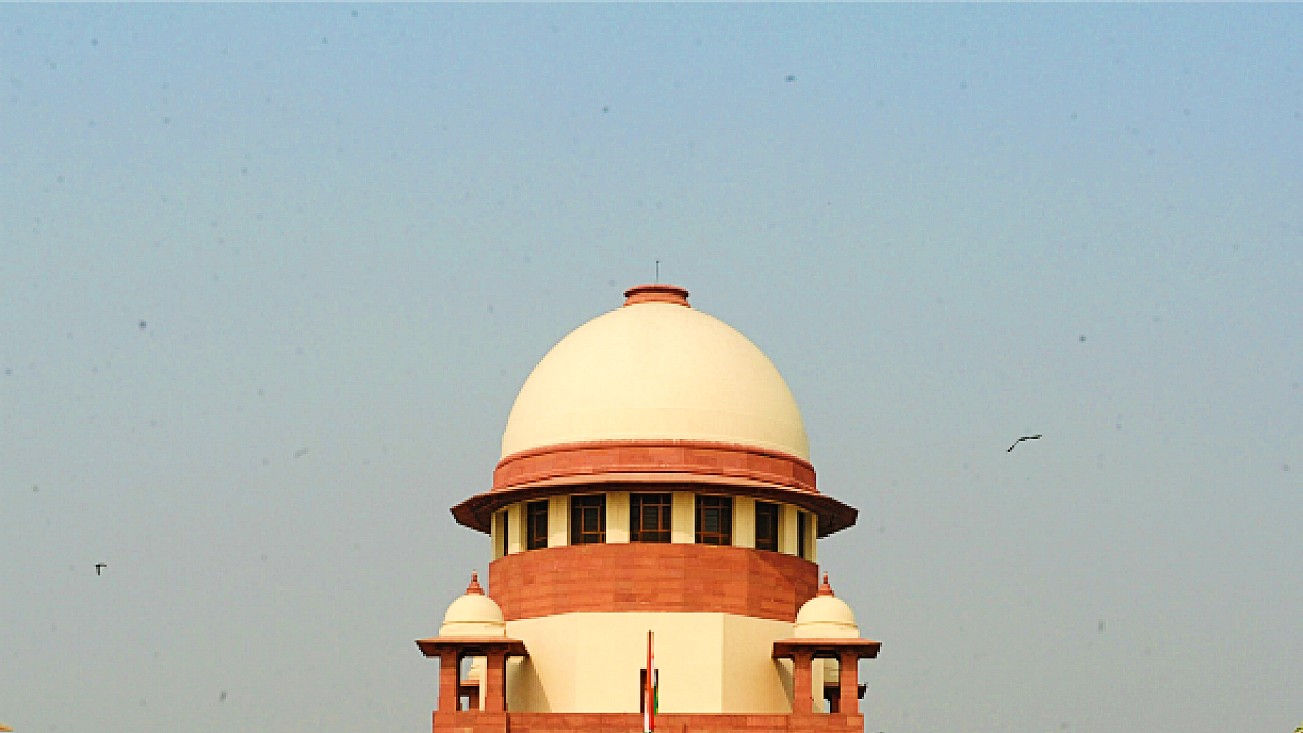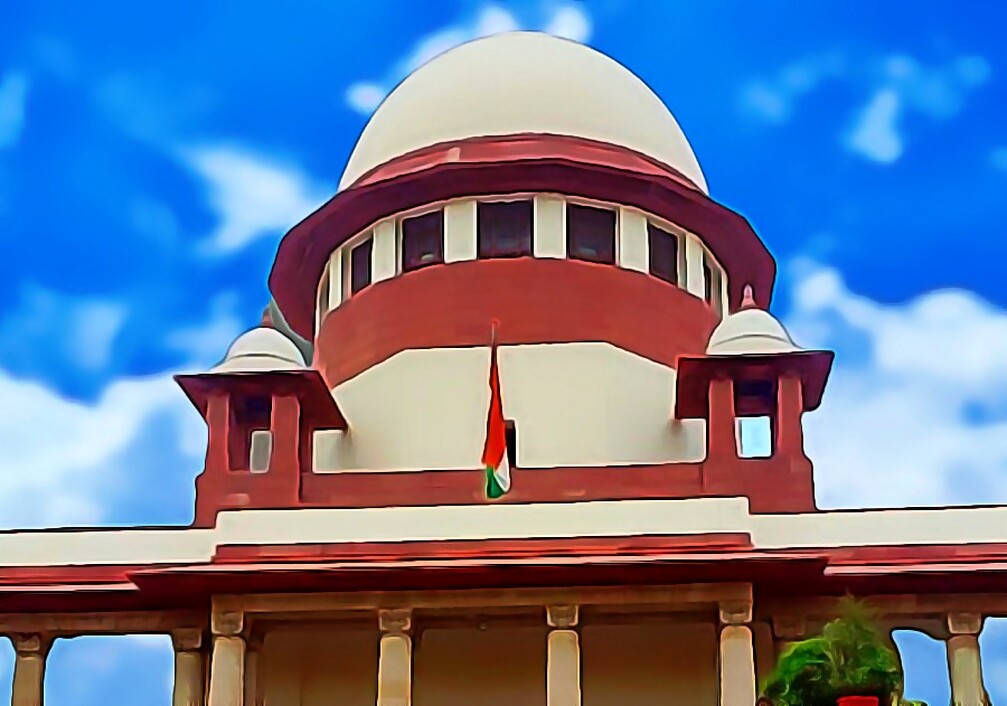Top Court directs Industrial Tribunal to adjudicate upon wage revision disputes raised in 2008 within 6 months, reiterates that employer’s financial capacity could not be ignored in fixing wage structure
Justices Aniruddha Bose & Sanjay Kumar [09-04-2024]

Read Order: THE VVF LTD. EMPLOYEES UNION v. M/S. VVF INDIA LIMITED & ANR [SC- CIVIL APPEAL NOS. 2744 - 2745 OF 2023]
Tulip Kanth
New Delhi, April 16, 2024: While observing that the Bombay High Court, in the impugned judgment, re-appreciated the evidence led before the Industrial Tribunal in identifying comparable concerns for applying the industry-cum-region test, the Supreme Court has ordered the Tribunal to conclude the reference raising issues of revision in pay scale within 6 months.
The proceedings have their origin in a charter of demand raised by the union for the year 2008 to 2011 under the various heads. The demand was in respect of altogether 146 workmen, out of which 80 were engaged at the employers establishment at Sewree and 66 of them employed at Sion, both being situated within Mumbai. The facts suggested that the original corporate entity VVF Ltd., underwent a demerger process and the units of the company at Sion and Taloja went to VVF India Ltd., the resulting company, during pendency of the reference, arising from the charter of demand.
The demands of the Union primarily related to prayers for revision in pay scale/ wages/ salaries along with certain allowances such as leave facilities and gratuity. The charter of demand.The Tribunal, in its award passed on 29.03.2014, granted relief to the employees represented by the union. Thereafter, both the employer and the union challenged the said award by instituting separate writ petitions before the High Court of Bombay and these writ petitions were disposed of by a common judgment by a Single Judge. The High Court allowed the workmen's writ petition by setting aside the award of the Tribunal so far as the first four demands as per the charter were concerned and upheld the Tribunals verdict regarding the remaining 7 demands.
The union, in its writ petition, had argued that the Tribunal had failed to consider the plea of the workmen for parity with similarly situated units in the vicinity as well as its claim for overtime allowances. It was the case of the Union that it would be well within the jurisdiction of the High Court to undertake some form of exercise of appreciation of facts. Reliance was placed upon Gujarat Steel Tubes and Others - vs- Gujarat Steel Tubes Mazdoor Sabha and Others.
The employer had assailed the judgment questioning the jurisdiction of the Writ Court in entering into fact-finding exercise while testing legality of an award. The employer sought to fault the approach of the High Court mainly on this ground. It was argued that the units with which the High Court had made comparison to arrive at its finding were not similarly situated, having regard to their industrial output and financial position. It was further submitted that the High Court in any event would not sit in appeal over the Tribunals award in exercising its jurisdiction of judicial review, primarily applying the scope of the writ of certiorari. Reference was made to the judgments in Surya Dev Rai v. Ram Chander Rai and Others, General Management, Electrical Rengali Hydro Electric Project, Orrisa and Others -vs- Giridhari Sahu and Others.
The main issue before the Division Bench of Justice Aniruddha Bose & Justice Sanjay Kumar was whether the High Court had traveled beyond its jurisdiction in appreciating facts and in that process substituted the finding of the Tribunal with its own finding on facts.
Referring to the authorities relied upon by the parties, the Bench said, “...though the High Court ought not to reappreciate evidence and substitute its own finding for that of the Tribunal, it would not be beyond the jurisdiction of the High Court in its power of judicial review to altogether eschew such a process.”
The Bench noticed that the High Court, in the impugned judgment, however, reappreciated the evidence led before the Tribunal in identifying comparable concerns for applying the industry-cum-region test. The employer had also emphasised that the High Court ignored the negative financial status of the company on the ground that the losses made by it was miniscule.
Further, reference was made to the judgments in A.K. Bindal -vs- Union of India & Ors. Mukand Ltd. -vs- Mukand Staff & Officers Association which lay down that financial capacity of an employer is an important factor which could not be ignored in fixing wage structure.
“In the given facts where the employer seriously contested the use of the concerned units as comparable ones, and highlighted its difficult financial position, the proper course would have been to remit the matter to the Industrial Tribunal rather than entering into these factual question independently in exercise of the writ jurisdiction. This exercise would have required leading of evidence before the primary forum, the Industrial Tribunal in this case”, the Bench said.
On behalf of the employer, it was also specifically argued that various allowances like house rent, shift allowance, travelling, medical, education and leave travel were granted without any evidence. The employer's witness no.2 had given his deposition in detail, particularly on the financial position of the company. From the judgment impugned, the Bench did not find proper analysis of the employers evidence in that regard. So far as the union's appeal was concerned, their point was confined to treatment of overtime wages in computing allowances admissible to them. That question also ought to be re-examined, the Bench opined.
Thus, setting aside the judgment of the High Court and the Tribunal, the Top Court held, “Let the Tribunal re-examine the cases of the respective parties afresh. We are conscious of the fact that these proceedings arise from a charter of demand made in 2008. We direct the Tribunal to conclude the reference within a period of six months.”
Sign up for our weekly newsletter to stay up to date on our product, events featured blog, special offer and all of the exciting things that take place here at Legitquest.



Add a Comment